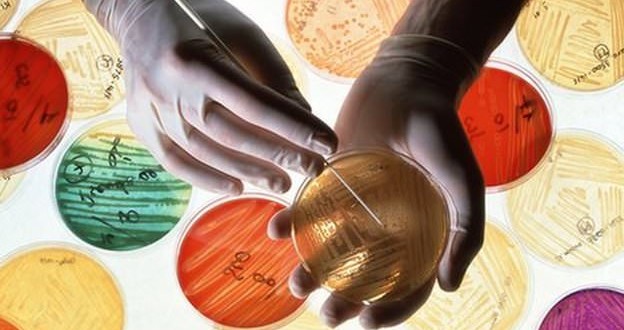Drug companies’ poor practices are to blame for the rise of antibiotic resistance which threatens to make even the smallest infections deadly, one industry chief executive has claimed.
Doctors have usually been blamed for bacterial resistance because of overprescription, but Karl Rotthier, the chief executive of Dutch-based DSM Sinochem Pharmaceuticals, claims lax procedures at drug firms are the real cause.
He said the very industry that produced lifesaving antibiotics was fuelling a global crisis.
He said that poor waste water checks had caused some rivers in Patancheru, India to have higher concentrations of active antibiotics than the blood of patients undergoing treatment.
Mr Rotthier said the world risks “sleepwalking” towards the end of modern medicine and a “post-antibiotic era”.
“For a couple of years now we have seen antimicrobial resistance rising and rising and you get scared because if we don’t do anything we risk deaths of up to 10 million by 2050,” he said.
The World Health Organization echoes his concerns and has classified antimicrobial resistance as a “serious threat” to every region of the world and says it “has the potential to affect anyone, of any age, in any country”.
Mr Rothier said: “Most antibiotics are now produced in China and India and I don’t think it is unjust to say that the environmental conditions have been quite different in these regions.
“Poor controls mean that antibiotics are leaking out and getting into drinking water. They are in the fish and cattle that we eat and global travel and exports means bacteria is travelling. That is having a greater contribution to the growth of antibiotic resistance than overprescribing.”
Antibiotic resistance is now estimated to contribute to more than 25,000 deaths every year in Europe alone.
“At the moment we risk ‘sleepwalking’ towards the end of medicine as we know it, to an era when something as innocuous as a throat infection becomes a life-threatening condition and when treatments such as transplant surgery become impossible,” Mr Rotthier added.
“As medicine producers, our business is intrinsically good. However, we don’t always live up to the responsibility we have towards society. Irresponsible behaviour is tainting the image of our industry and puts society at risk.”
Penicillin, the first antibiotic, was discovered by Alexander Fleming in 1928 and more than 100 compounds have been found since but, until a reported discovery earlier this month, no new class has been found since 1987.
This lack of new drugs coupled with overprescribing has led to bacteria becoming increasingly resistant to modern medicines. Dame Sally Davies, the British Government’s Chief Medical Officer, has said that antibiotic resistant is “as big a risk as terrorism” and warned that Britain could return to a 19th-century world where the smallest infection or operation could kill.
Mr Rotthier said the responsibility was on everyone from patients and doctors to governments and pharmaceutical companies to take immediate steps to ensure the “legacy of antibiotics as a lifesaving medicine is not squandered”.
“In some countries antibiotics are readily available over the counter and they are being given to cattle and painted onto boats to prevent algae,” Mr Rotthier added.
“We need to insist on the highest standards of environmental production methods for producing antibiotics so no wastewater and sludge is ending up in our lakes.
“We cannot have companies discharging untreated waste water into our environment contributing to illness and worse, to antibacterial resistance. We cannot accept that rivers in India show higher concentrations of active antibiotic than the blood of someone undergoing treatment.”
Earlier this month scientists at Northwestern University in the United States said that they had discovered the first new antibiotic in nearly 30 years, hailing it as a “paradigm shift” in the fight against growing resistance to drugs.
Teixobactin treats tuberculosis, septicemia and C. difficile and could be available within five years.
Agencies/Canadajournal

 Canada Journal – News of the World Articles and videos to bring you the biggest Canadian news stories from across the country every day
Canada Journal – News of the World Articles and videos to bring you the biggest Canadian news stories from across the country every day

